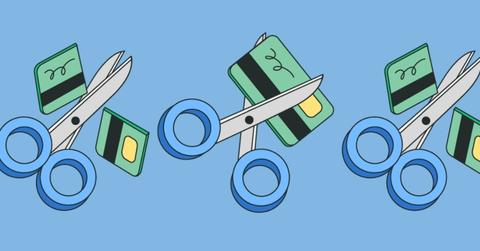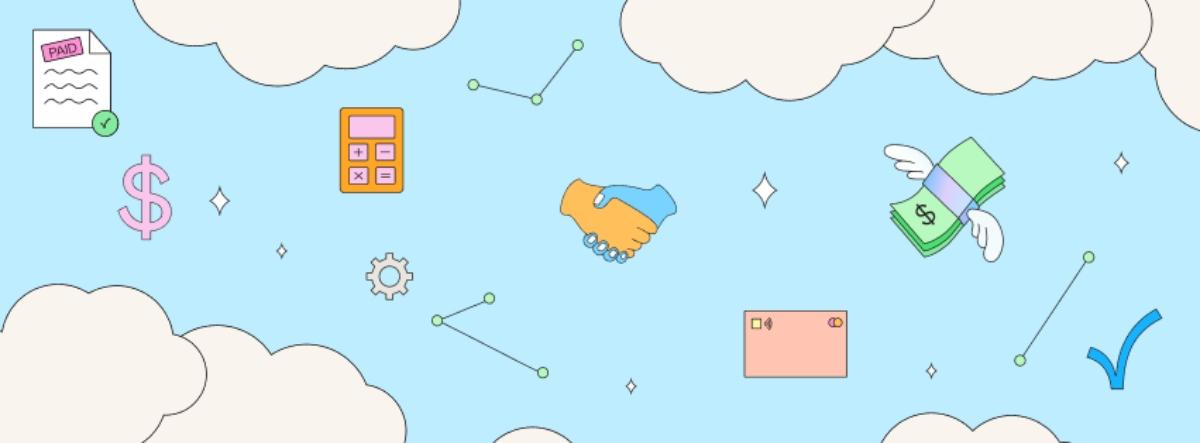Tally vs. Payoff: Which Is Best for Paying Off Credit Card Debt?
Tally and Payoff are two fintech companies that help users pay consolidate and pay off credit card debt. Which is best for paying off credit card debt?
July 28 2022, Published 12:01 p.m. ET

Credit card debt can hinder your financial goals. Tally and Payoff help users pay off credit card debt faster with one monthly payment.
A total of 229 million new credit card accounts were opened in the U.S. in the first quarter of 2022, CNBC reported. Those balances can put Americans behind in reaching major financial goals, so paying off credit card debt is essential. Let's look at Tally vs. Payoff, two platforms designed to help consumers pay off credit card debt.
The Tally app works to help you reduce credit card balances by opening a line of credit, and also pays your bills automatically if you wish. Similarly, Payoff offers consolidation loans exclusively designed to reduce credit card debt. But which fintech platform would fit your debt payoff needs the best, and why?
Pros and cons of using Tally to pay off credit card debt
Tally has several benefits over trying to manage debt payoff on your own.
APR between 7.90 and 29.99
One consolidated payment without paying transfer fees
Available in 44 states
Late fee protection
Cons of Tally:
$25/month or $300/year fee (but it pays automatically from your credit line)
Must have decent credit to qualify
No desktop software

Payoff offers loans to help you pay off credit card debt more efficiently.
Pros and cons of using Payoff to pay off credit card debt
Payoff works by offering personal loans at a fairly reasonable interest rate. The loans are solely intended for credit card payoff. Payoff’s loans consolidate multiple credit card balances into a single loan with a fixed rate.
Pros of Payoff:
Payoff reports to all three credit bureaus, helping you build your credit score.
Available in all states except Massachusetts and Nevada
No late fees
Cons of Payoff:
Loans max out at $40,000
Origination fees are between 0 and 5 percent
Must have decent credit to qualify
Tally and Payoff share a number of benefits.
Here are the key benefits of both programs:
They simplify debt payoff by rolling all credit card debt into one payment, rather than juggling balance transfer offers.
You may receive a lower fixed interest rate than individual credit cards.
Soft credit pull won’t harm your credit score
Late fee protection
Tally and Payoff share some drawbacks as well.
Tally and Payoff have some shared drawbacks. They both require fairly decent credit scores to qualify, so if your credit is poor, you’ll be out of luck.
They’re also limited in scope, being solely intended for credit card debt payoff. Other financial goals like budgeting, saving, or money management aren’t incorporated. However, budgeting apps can ease that struggle as well.
Tally vs. Payoff: either can make credit card debt payoff easier.
Both Tally and Payoff share some attributes: checking your rate requires a soft credit check that won’t hurt your credit score, and they both enable users to make one monthly payment to cover all credit card debt. They also will pay your credit card bills directly, but you have the option of manually paying them if you wish to be more hands-on.
Borrowers might also be able to pay down credit card debt by focusing on their card with the highest interest rate first and gradually paying it off (the debt avalanche). However, if multiple credit card balances and different due dates are cumbersome, using Tally or Payoff offers a simple solution.
